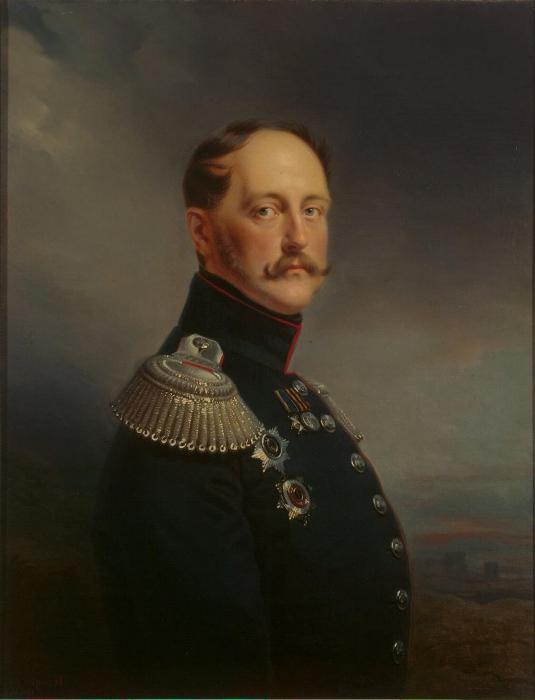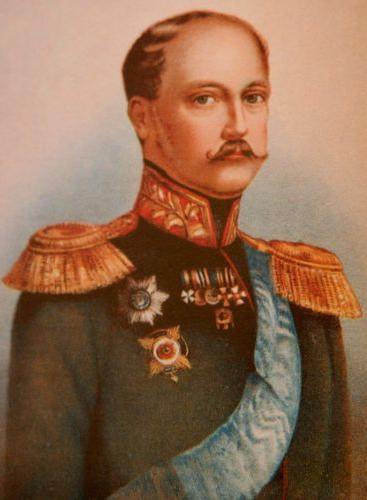
Nikolay First Pavlovich is the emperor who ruled with1825 to 1855 in the Russian Empire. Because of cruel corporal punishment, mostly in the military environment, he received the nickname "Nikolai Palkin", which later became widely known because of the eponymous story of Leo Tolstoy.

Nicholas I was the third son of Maria Feodorovna andPaul I. He received a good education, but did not show much zeal for studying. He hated the humanities, but he understood military art very well, he knew engineering and was fond of fortification. The soldiers considered Nicholas I to be arrogant, cruel and cold-blooded. In the army, unfortunately, they did not like him.

On the first day of the reign of the SenateSquare there was a tragic event - the Decembrists rebelled. This incident left a deep imprint in the soul of Nicholas and instilled in him a fear of freethinking. The uprising was successfully suppressed, and its leaders were executed. Nicholas the First was a conservative and did not change the planned political course for about thirty years.
What internal policy did Nicholas 1 lead? Briefly.
Nicholas the First in every way suppressed all manifestationsfree-thinking and free-thinking. The main goal of politics was the utmost possible centralization of power. Nikolay First wanted to concentrate in his hands all the levers of governance of the state. Specially for this purpose, a personal office was created, which included six departments:
- the first branch was in charge of personal papers;
- the second was in charge of the legislation;
- the secret chancery was the third department. She had the widest powers;
- the fourth department was ruled by the Emperor's mother;
- The fifth branch dealt with peasant problems;
- The sixth dealt with the problems of the Caucasus.

The government was the backbone of the throne. Nicholas the First did not have any confidence in the nobles, as they deceived him and betrayed him, coming to the Senate Square. The reason lies in the Patriotic War of 1812. It was then that the noblemen went along with the common peasants of half of Europe, saw the difference between the standard of living in Russia and in the West. This rallied the estates in Russia. In addition, at that time the ideas of Freemasonry, which played an important role in the revolutionary mood, were widely circulated in the country.
Nicholas the First did a lot in other spheres of life. He solved many problems concerning peasants, corruption, development of transport and industry.
</ p>